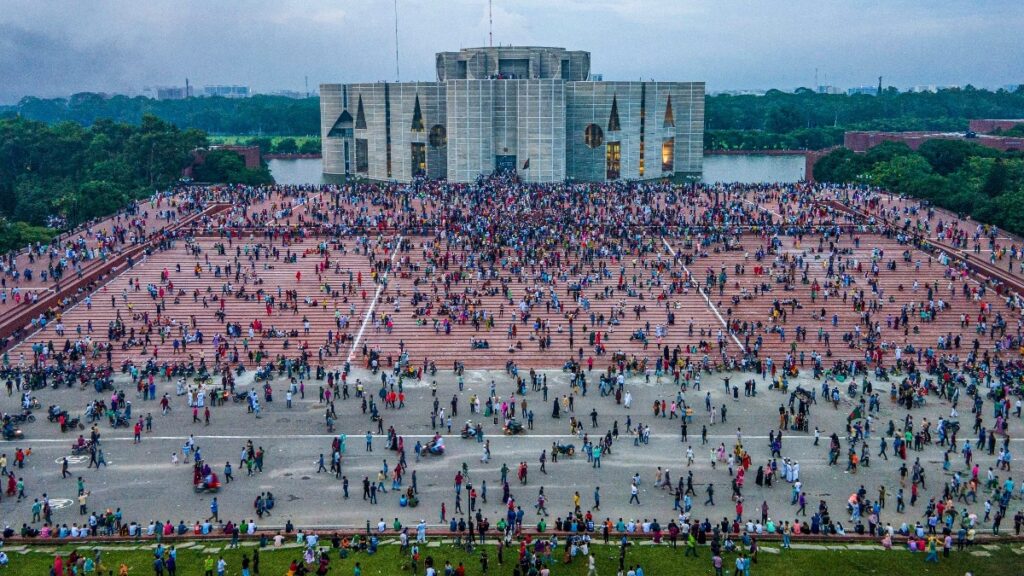Bangladesh has been burning for many months. The fire of violence spread so much that Prime Minister Sheikh Hasina had to resign. This alone did not solve the problem. The situation had worsened so much that after resigning, she had to leave the country.
But what was the reason for this? Actually, Bangladeshis do not earn enough to lead a decent life. This anger was further fuelled by the quota system in the government system. There was a 30% quota for freedom fighters and their children in government jobs. This added fuel to the fire, as the public had been struggling with unemployment and low minimum wages for many years.
Barring a few countries like Burundi and Rwanda, workers in Bangladesh receive the lowest wages.
Related news
- Kolkata rape-murder case: ‘Our dreams were shattered in one night’, father reveals what was written in daughter’s diary
- Independence Day 2024 Live Streaming: When and where to watch PM Modi’s address on Independence Day? Here are the direct links
- Independence Day 2024: These 10 British brands were once the pride of the British, today Indians rule them!
- Who is 1989 batch IAS Govind Mohan, who has been appointed as the new Home Secretary
- हिंदोस्तां की मिट्टी के आसमां का जादू, जंग-ए-आज़ादी में ये था उर्दू ज़बां का जादू!
According to the International Labour Organisation (ILO), while the average minimum wage of 110 countries was $719 in 2022, the minimum wage in Bangladesh was only $45.
After China and the European Union, Bangladesh is the largest supplier of clothes in the world. Most of Bangladesh’s garment industry is in and around the capital Dhaka.
The 2023 report of the Anchor Research Institute shows that in 2016, the average income of a Dhaka family was 16,450 taka, while the family needed 25,990 taka to meet its expenses. In 2023, the income increased to 25,462 taka (about Rs 18,200), but the family’s expenses also increased to 40,228 taka (about Rs 28,800). That is, Bangladeshis earn 37% less than what is needed to meet basic needs. The situation is the same in the cities around Dhaka.
16 companies like Adidas, Puma, Gap and Levi Strauss had also written a letter to Prime Minister Sheikh Hasina on 11 October 2023 last year regarding the minimum wage. In this, the companies had written that there is a need to take the minimum wage to such a level that can meet the basic needs of the people as well as handle the burden of inflation.
Last year, workers in the garment industry demanded that the minimum wage be increased from 8,000 taka (Rs 5,700) to 23,000 taka (Rs 16,400). According to the Fair Labor Association, the minimum wage in Bangladesh has remained at 8,000 taka since 2018. According to the World Bank definition, this salary puts a family of three below the poverty line.
However, despite this, the government had proposed to increase the minimum wage to 10,400 taka (7,400 rupees). Which was not even half of the workers’ demand. Due to this, there were protests across the country in October-November last year.
Due to the protests, the government increased the minimum wage for workers working in the garment industry to 12,500 taka (about Rs 8,900) in December 2023. This wage is nothing compared to meeting the daily expenses.
Low salary is a problem, but the common people there are also troubled by the skyrocketing inflation. The inflation rate was 5.5% in 2021, which increased to 7.7% in 2022 and again to 9.9% in 2023.
Lack of jobs has further aggravated these problems. The unemployment rate in Bangladesh has been hovering above 15% since 2020.
Source (PTI) (NDTV) (HINDUSTANTIMES)
